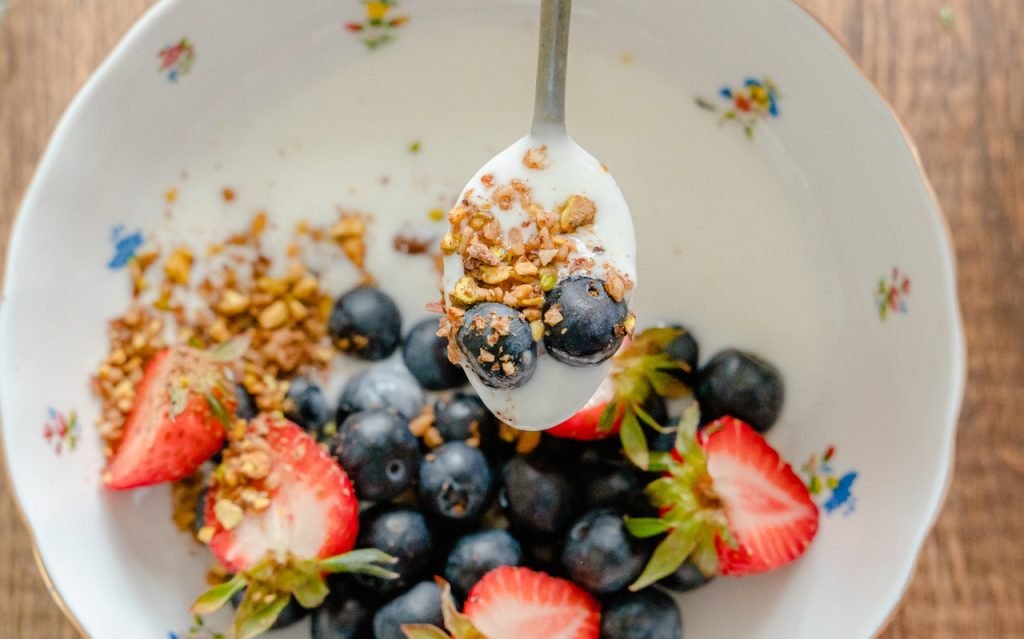5 Healthy Habits for Back to School and How to Pack A Healthy School Lunch.
Discover > Texas Mom Blog > 5 Healthy Habits for Back to School and How to Pack A Healthy School Lunch.
August brings with it a buzzing excitement in the air. With school now in session, it is ‘back to routine’ for school-going families.
What most families find true is that as the first week rolls in, we are all geared up, motivated, and inspired. So we thought, what better time than now to create an opportunity and work healthy habits into your new school schedules? These routines will work all year round, preventing burnout, allowing family members to stay on top of their school routine game-mentally, physically, and academically.
Starting the Day Right: 15 Healthy Breakfast Ideas
Kickstart your day with energy and vitality using these 15 healthy breakfast ideas. Discover nutritious options that will keep you and your family fueled throughout the morning.
Make that Right Start.
We cannot put enough emphasis on the benefits of a healthy and balanced breakfast. Sitting in class with an empty stomach can cause concentration problems, and make a child grumpy and non-reactive. Give your children ample time in the mornings for a well-rounded breakfast. While waking up early enough will help, a morning scramble is unavoidable on some days. In this case, find ways to help your family by planning. Plan out school day breakfasts ahead of time.
Prepare your kids for the school year with these 6 wholesome and delicious back-to-school snacks that are both nutritious and kid-approved.
You can pre-cook and freeze egg muffins or other types of muffins, so everyone can get their own breakfast when needed at a moment’s notice.
Skip the premade morning breakfast bars (how long do breakfast bars last?), and try these simple overnight oats (how long do oats last?) for a nutritious start to the day.
While breakfast is important, eating the wrong kind of breakfast will also lead to exactly the same reaction in a child as if they hadn’t had a meal.
Dr Alina Olteanu, MD, PhD, Frisco Texas, from Whole Child Texas is a pediatrician who practices integrative medicine and functional medicine and natural treatments for Autism, ADD, ADHD, Depression, Allergies, and other chronic childhood conditions. Dr Alina recommends a diet with no artificial dyes, no preservatives, no sugar, and a daily diet rich in vegetables and fruits. “Kids need to have at least five to eight servings of vegetables and two to three servings of fruits per day. They also need healthy protein and fats that are really important for brain development and their vitamin D absorption”, says Dr Alina.
So, incorporating small portions of these foods during breakfast meals will help kickstart that daily goal. You may like to start off with our Mini Caprese Salad Bites or our delish grilled corn on the cob.
Cut down all processed sugar and processed foods that have high amounts of added sugars. For example, fruit juices and sugary drinks for breakfast are a big NO! Honestly, just throw them out. They do you no good.
Instead, add these healthier alternatives for white sugar to your breakfast smoothies.
If you have to pick, always go for the full-fat dairy. Low-fat options skim the fats and amp up the sugar. That is not what we want. Full-fat dairy slows down digestion, releasing energy steadily, keeping kids feeling fuller for longer. Also, growing kids require healthy fats in moderate quantities for well-rounded development.
Healthy Eating for Picky Eaters
Overcome the challenge of picky eaters with practical tips and delicious recipes designed to make healthy eating an enjoyable experience for even the fussiest little ones.
If your children don’t like eating in the mornings, have them eat in the last 10-15 minutes before you head out the door.
What About After-School?
School can be psychologically and emotionally challenging for kids. Some days they might come home content and pleased; other days, they might be disheartened or stressed. The more sensitive you are to their mood as they return from school, the better you can bond with them and adjust your expectations for the rest of the day.
Back-to-School Tips for Busy Moms (2022 Edition)
Navigate the back-to-school season like a pro with the latest tips tailored for busy moms, ensuring a smooth and organized transition for the entire family.
Establish an after-school routine that works along with your children’s physical energy levels and moods. Many kids return from school hungry! Having a balanced snack ready is a great mood booster and helps them feel upbeat throughout the afternoon. Pick your child's favorite from these healthier-for-you, local snacks.
If your kids have after school activities to rush off to, you need to have fixed systems in place so that everybody can be out the door in a matter of minutes. To make this transition easier,
Have their activity material ready to go the night before.
Have a portable snack planned to have on the go. Try our Texas Avery’s Savory Popcorn or kale chips from K’s Kitchen.
It’s OK to keep it simple. You don’t have to produce elaborate snacks. For example, simply cutting up fruit with nut butter dip is perfectly fine!
If your kids are old enough, they can fix these exciting and healthy snacks themselves!
Kid-Friendly Healthy Snack Options
Explore 8 kid-friendly and healthy snack options that will not only satisfy your little ones' taste buds but also keep them energized and ready for any adventure.
Create a Fun Family Exercise Routine!
Unstructured Playtime
Unstructured play is crucial to kids’ well-being! This type of play, when children play without any adult guidance, can easily be ignored in the course of daily “to-do” activities during school days. I have found an easy way to incorporate unstructured play into our routine. We like to hit the backyard for a 20-minute “brain break” from homework when we begin to get overwhelmed with school tasks. This free play encourages creativity by letting them use their imagination freely and gives a much needed refreshing interval.
Get Your Kids Involved: Cook Together
Encourage a love for cooking and healthy eating by getting your kids involved in the kitchen. Discover the joys of cooking together with these family-friendly recipes.
Family Walk
Take a walk! Get that much needed daily physical exercise with your children. A fun family run in an open space can do wonders for managing mental health and physical health. But, unless you prioritize it and stick to physical exercise every day, it is very easy to miss!
Modeling the value of exercise is more effective than just instructing kids to exercise. Energetic children are less likely to become overweight, have stronger bones and muscles, and have a low risk of developing Type 2 diabetes. Here is my blog on how inactivity and a sedentary lifestyle increases the risk of Type II diabetes in children.
Plan, Plan, Plan.
Meal planning makes a huge difference in saving time, money, and energy on busy days. And while it may seem so, meal planning doesn’t really take up a lot of time. Plan ahead for a week and write out a meal schedule so that you know what you’ll be serving for the whole week. It allows you to consider your family’s schedule and figure out which meals work best on which days while minimizing food waste.
Meal Planning Tips for Busy Texan Families
Streamline your meal planning process with these practical tips tailored for busy Texan families, ensuring that delicious and nutritious meals are always on the table.
Start with healthier meals. Nothing beats a nutritious home-cooked meal from scratch, made with local and fresh ingredients. TexasRealFood has a whole directory dedicated to places you can source your fresh veggies, fruits, and more. Make sure to add plenty of fiber to your family’s meals to control blood glucose levels.
Ideas for meal planning and lunch (What wine goes well with lunch?) box components
Fruits/vegetables: Colors in fruits and vegetables can help denote which different vitamins and minerals they contain. The blue/purple in blueberries, kale, grapes give us vitamin A, C and K. The orange/yellow in carrots, grapefruit, bell peppers provide antioxidants alpha- and beta-carotene. So, it is a great idea to eat from ‘the rainbow’ to get a range of necessary nutrients.
Grains: Some wonderful examples include whole wheat or gluten-free bread, tortillas, muffins, mini bagels (how long do bagels last?) or pita pockets. Brown rice, whole wheat, gluten-free, or veggie pasta, quinoa (how long does quinoa last?), couscous (What wine goes well with couscous?), barley (how long does barley last?), oatmeal, popcorn, whole wheat crackers, tortilla chips (how long do tortilla chips last?), whole-grain pretzels (how long do pretzels last?), granola (how long does granola last?), whole wheat waffles, raisin toast. Find these and more options in our TexasRealFood directory for bakeries.
Protein: Chicken, nitrate-free deli meat, hard-boiled eggs, nuts, seeds, nut butter, hummus, beans, edamame, tofu (how long does tofu last?). Find all the protein you need at a farmers market near you!
Dairy: Yogurt, cottage cheese (how long does cottage cheese last?), paneer cheese, milk and smoothie pops.
Are you looking for these? Find them locally on our TexasRealFood directory.
Top Tips for Teaching Kids Healthy Eating Habits
Empower parents with top tips for teaching kids healthy eating habits, fostering a positive relationship with food that will benefit them throughout their lives.
Keep a Consistent Sleep Schedule.
A healthy sleep routine doesn’t just involve eight hours of sleep. It means restful, restorative sleep. The presence of electronics in the bedroom can significantly hinder sleep patterns in children and adults. 35% of 2nd graders in Texas have electronic devices in their bedroom, and 79% of 11th graders sleep near their phones.
Lack of good quality sleep is a health hazard for children. It’s directly related to the body’s capacity to metabolize nutrients and glucose and manage weight. The American Academy of Sleep Medicine recommends school-age children (aged 6 – 12) sleep 9 – 12 hours a night, and teenagers (aged 13 – 18) get 8 – 10 hours of sleep.
Have your children hand over electronics at a time you decide upon, and stay consistent so that your children know when the time for electronics is up. Dr Alina recommends shutting down all screen activity at least two hours before bed. A few other helpful tips for helping your kids get good sleep are:
Have a bedtime routine, and stick to it. Get in enough age-appropriate activity during the day, so your children sleep better at night.
Nature-Conscious Kids and Better Eating
Explore the connection between nature-conscious kids and better eating habits. Discover how an appreciation for nature can positively influence children's food choices.
Most Importantly,
You as a parent will need to take the first step towards a healthier lifestyle, and your children will eventually follow suit, if not immediately. As schools restart, parents need to bring about a total shift in the household. It is the most effective way to deal with a child’s health overall, rather than singling out the struggling kid and expecting them to adhere to healthier routines.
As you work to implement a new routine, remember that flexibility is healthy, too. Some days the best-made plans fail, and how! On those days, breathe and don’t stress about not meeting your goals. Texas Mom Blog and TexasRealFood help families nourish happy, healthy, and productive minds and bodies with their resources.







